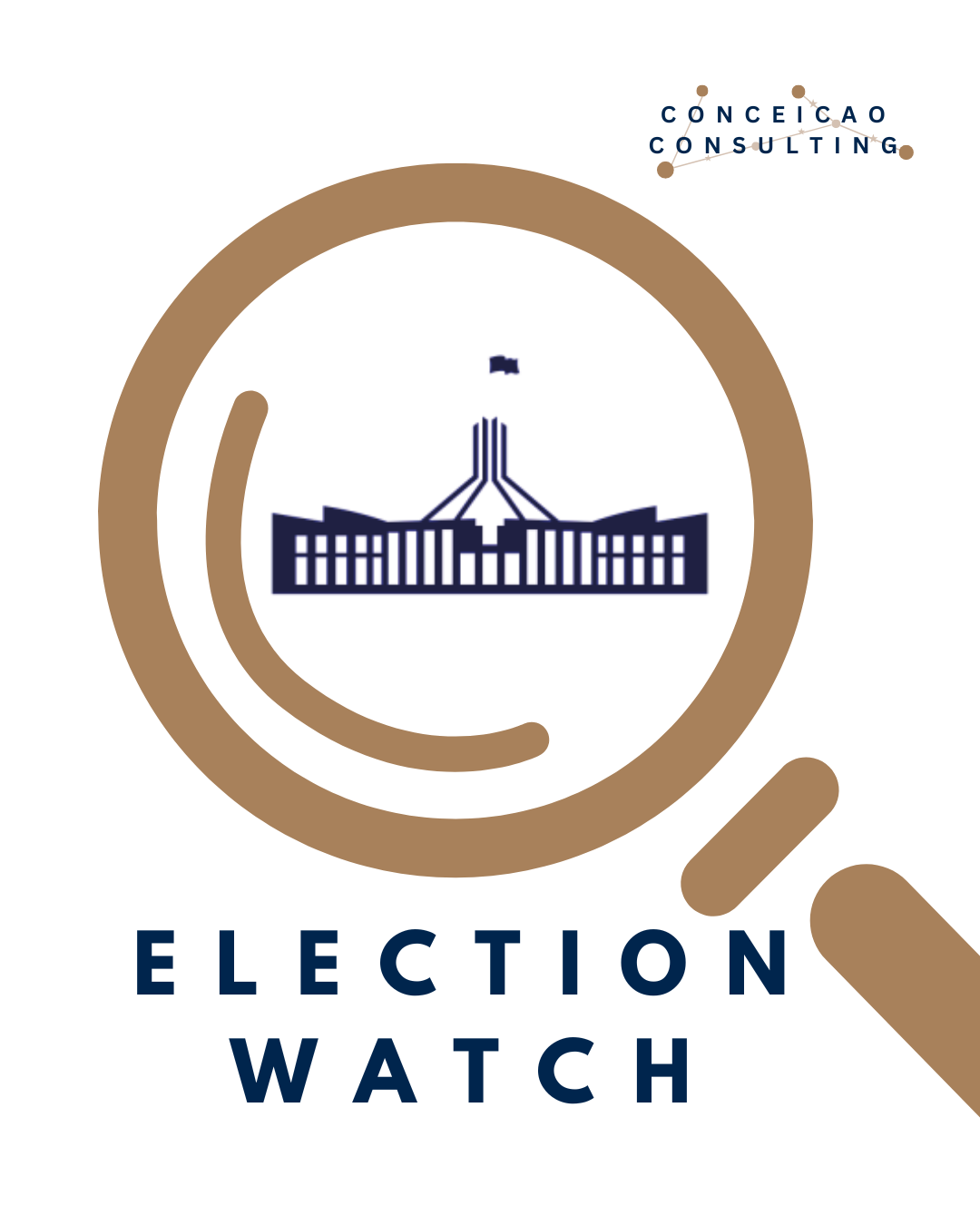
Election Watch
Track the skills policy announcements for the 2025 Australian Federal Election
Labor
Labor skills policies announced during the campaign:
Doubled incentives for apprentices in construction trades, with eligible apprentices now able to receive up to $10,000, and employer $5,000, through the Priority Hiring Incentive.
“Build Australia’s Future - Increased Support for Apprentices’, to commence 1 January 2025, targeting critical construction occupations.
Expansion of Fee Free TAFE placements in 2025-26, following the passing of Fee-Free TAFE legislation to make permanent 100,000 Free TAFE places every year from 1 January 2027.
$7M committed over four years to increase the living away from home allowance to $120 per week for first-year apprentices, $90 per week for second-year apprentices, and $45 per week for third-year apprentices.
$11M over four years to increase the Disability Australian Apprentice Wage Support subsidy to $216.07 per week.
Increase in the number of TAFE Centres of Excellence being established under the National Skills Agreement that are eligible to receive additional funding to fast-track their establishment (previously committed to 6).
$1.9M in 2025-26 for the extension of a dedicated taskforce within DEWR supporting the development of skills and training initiatives assisting with the delivery of Australia’s nuclear-powered submarine program.
National Occupational Licensing for Electricians, including mutual recognition schemes and addressing the challenges of apprenticeships and training packages within this.
Key focus areas: cost of living pressures, supporting the construction sector to ease housing pressures, improving pathways and processes to build a skills future workforce, Future Made in Australia plan, safeguarding the integrity of VET, access to support for retrenched workers and their partners.
Budget notes:
Increase in the Australian Apprenticeship Support Loans (from $259,290,000 to $281,908,000 - a big jump 8.73% year-on year is noted in this amount. No further information provided as to the reason for the jump - is an increase in apprentices expected? Or just cost of living making this more appealing to apprentices?)
Year-on-year increase to the “labour market assistance to job seekers and industry” spend ($2,395,000 in 2024-25, $2,502,000 in 2025-26, increasing to $2,601,000 in 2028-29), reflecting increased spend on employment services over this period.
Year-on-year reduction to vocational and industry training (incentives) ($2,599,000 in 2024-25, to $1,832,000 in 2028-29), noted to be the tail end of the Boosting Apprenticeship Commencements (COVID program) wage subsidy.
Vocational and other education (training costs - TAFEs, RTOs, NSA) shows a relatively balanced spend across the forward estimates, reflecting the commitments within the National Skills Agreement, which expires on 31 December 2028.
Jobs and Skills Australia has a reduction in budget from $8,181,000 in 2024-25 to $5,920,000 in 2025-26, and nothing in the forward estimates.
National Careers Institute shows no funding from 2025-26 onwards, as does the skills communication campaign and VET information strategy and National Skills Passport.
Jobs and Skills Councils funding shows forward projections to 2028-29 at relatively stable levels, demonstrating the government's ongoing commitment to this program of work.
COALITION
Build 12 new technical colleges, at least one in every state, at a cost of $260m. The specialist schools with support students from years 10 to 12, with students to enrol in a school-based apprenticeship or traineeship and also completing academic, IT and business courses to achieve a year 12 certificate. The first is set for the Hunter Region in NSW, in the seat of Paterson. Targeted industries include housing, infrastructure, defence and nuclear energy.
International student caps and increased visa fees, including a cap on new overseas student commencements at 25% of total commencements, an increase in student visa fees (double for Group of Eight Universities), and a combined limit of 125,000 international students in the broader tertiary education sector.
Set a target of 400,000 apprentices and trainees in training across Australia.
Restore targeted incentive payments for employers to hire and train an apprentice.
Provide SMEs with $12,000 to support them to put on a new apprentice or trainee in critical skills areas for their first two years of their training, with a particular focus on the building and construction industry.
Key focus areas: Mining, agriculture, construction, manufacturing, artificial intelligence, automation, cyber security, space, bio and nanotechnologies, defence and sovereign capability, gas and nuclear.
Cut to migration program by 25 per cent. Set stricter caps on foreign students.
Greens / Independents / Minor Parties
Greens
Wiping out student debt.
Making education (including TAFE and University) free, fair and accessible.
Treating educators with dignity.
Investing in staff, students and sustainable infrastructure.
one nation
Reintroducing apprenticeship wage subsidies.
Decentralising education policymaking, shifting power from Canberra back to the states.
Refocusing education on ‘reading, writing, arithmetic and discipline’.
INDUSTRY WISHLIST
Last updated 7 April
What industry care about
We analysed the policy platforms of Master Builders, Civil Contractors, HIA, NECA, AiGroup, ACIF, ACCI and BCA, which told us industry want:
Funding and strategies to increase female participation (and other diversity, equity and inclusion programs) in traditionally male trades.
Employer incentives for apprenticeship employment, prioritising SMEs and regional.
Skilled migration, including consideration of a Trades Passport Program.
What employment services care about
We analysed the policy platforms of employment and disability service providers, which told us they want (in no particular order):
Funding to support increased employment for people with a disability.
Reduction of red tape.
Safety for frontline staff.
Government stewardship for employment services.
What the PRIVATE SKILLs and education sector care about
We analysed the policy platforms for the skills and tertiary sector, including ITECA and IHEA. Many industry bodies, including TDA, do not have a public policy platform.
ITECA and IHEA want:
A rethink of a TAFE-centric skills system.
Supporting the integration of skills and tertiary education.
A reduction of red tape and reporting.